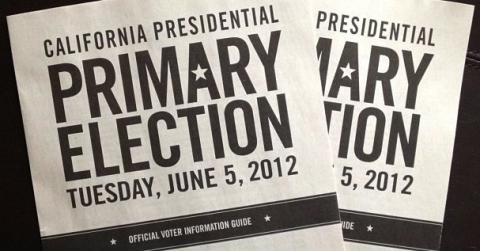While discussion of the government shutdown has shifted to a conversation about the economic implications, John Wildermuth, a longtime writer on California politics, discusses the impact on California lawmakers in respect to the state's new nonpartisan primary system on Fox&Hounds Daily Blog:
"For those folks still saying California’s primary election changes aren’t doing a thing, take a look at the House vote to end the government shutdown.
[Eight] of California’s 15 GOP congressmen (and yes, they are all men), went against the majority of their Republican brethren and supported the Senate plan to end the House GOP-led shutdown and send hundreds of thousands of federal employees back to work.
Now it could be a coincidence that two of the seven, Gary Miller of Rancho Cucamonga and Hanford’s David Valadao, are among the Democrats top targets in 2014 and represent districts that, when redrawn before the 2012 elections, became instantly more competitive.
Nah.
Both Miller and Valadao are experienced politicians capable of testing the wind to know how the shutdown was playing in their districts. And unlike officeholders in the safe districts that the state Legislature’s old “incumbent protection” redistricting plan provided before 2012, they know that they will have to explain their votes to everyone in the district, not just their party faithful...
Both Valadao and Miller represent districts with big Latino populations and it turns out that Latinos really, really disliked the government shutdown. A poll released Oct. 17 by the Natural Resources Defense Council found that , 70 percent opposed the shutdown and 71 percent didn’t like the way Republicans in Congress were doing business.If you’re a GOP congressman in a heavily Latino district, you don’t have to be a political genius to know what the crowd-pleasing vote would be..."
